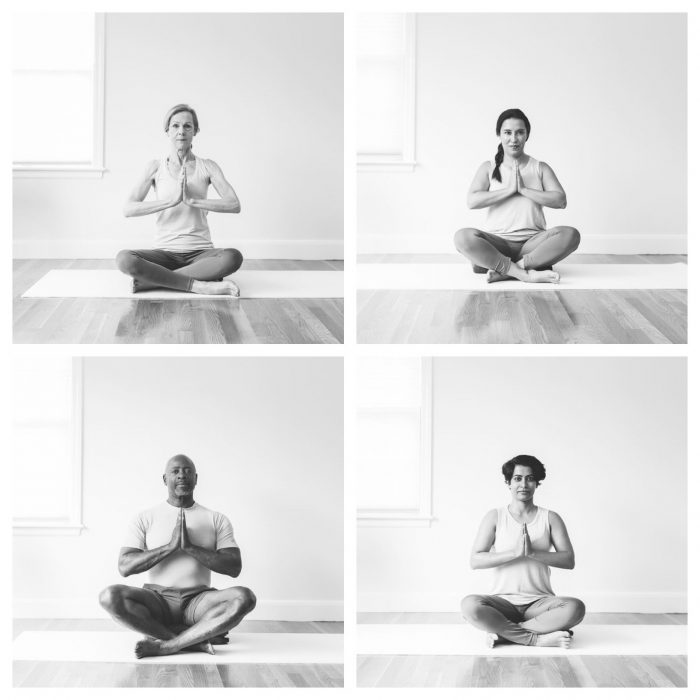Books and articles abound on the idea that yoga can be helpful in healing depression and anxiety. I should know—I am coauthor of one such book, “The Yoga Effect!” Because our book is based in published scientific research, it’s important to me that people understand that “yoga for depression and anxiety” isn’t just an inspiring hope, it’s an evidenced-based reality.
Yoga for mental health is, in other words, a thing—for these seven reasons and many more. Trust me, you should trust yoga.
Yoga Helps Us Feel, Better
Yoga practice puts us in close communication with both our bodies and minds. Have you ever noticed that 188 of the 196 Yoga Sutras of Patanjalifocus specifically on the mind, the human experience of consciousness? Guided by yoga teachings and mindful habits, we are empowered to better notice and fully inhabit our feelings, thoughts, and actions.
Yoga Turns Us Upside Down (In a Good Way)
Inversions are agents for mental change; a simple inversion like Inverted Cleanser can bring the body into a state of relaxation and help balance the nervous system. Physically moving in this way can bring home the yogic notion of pratipaksha bhavanam, or “cultivating the opposite feeling” of a challenging emotion, turning anger, sadness, or frustration “on its head.”
The Scientific Evidence Is There
Numerous scientific studies support the idea that yoga practice supports mental health, and new research is under way even as I write these words. One body of research conducted by “The Yoga Effect’s” coauthors Liz Owen and Chris C. Streeter, MD at Boston University School of Medicine has found through MRI imaging that yoga practice is associated with increased levels of a neurotransmitter called GABA—often called a “natural antidepressant.”
Breath Practice Changes Minds
Breath work such as Ocean (Ujjayi) Breath and Coherent Breathing has been shown to signal the brain to wake up, calm down, or otherwise meet ourselves wherever we are, depending on what we need and how we breathe. Making our exhales longer than our inhales is relaxing, while the opposite breath pattern can stimulate an influx of refreshing energy. Best of all, breath work is portable and can be a supportive companion throughout the day.
Yoga Helps Us Be Brave
Whether we are facing a life challenge or attempting an “out-of-my-comfort-zone” pose, yoga practice teaches us that when we find the courage to closely examine what we see when we look inward, we can make lasting positive changes, including having the tenacity to radically accept ourselves wherever we are on our journey.
Yoga Teaches Us to Rest
Virtually every form of yoga ends with Deep Relaxation, an opportunity for body and mind to come into a place of profound rest. There are many different types of rest—among them are restorative poses, sleep, and doing peaceful activities that bring us joy. True rest is a liberating freedom to seek out quiet moments of recovery following periods of activity or challenge, not unlike settling into a delicious Deep Relaxation after a yoga class or practice.
Yoga Is a Source of Support—Literally and Emotionally
Every time we reach for a prop to support our yoga practice, from a belt to a bolster to a block to a chair, we reinforce the idea that a goal in yoga is to notice and use whatever we need to honor our bodies and challenge ourselves only in healthy, helpful ways. Partner work, and the community connections that come with regular class attendance, build on this idea even more. One in five American adults experiences a mood disorder at some point in their lives, so none of us is alone in our struggles—or in our ability to find and give the support each of us needs.
Photo courtesy of Tracy Rodriguez Photography.












Read 0 comments and reply